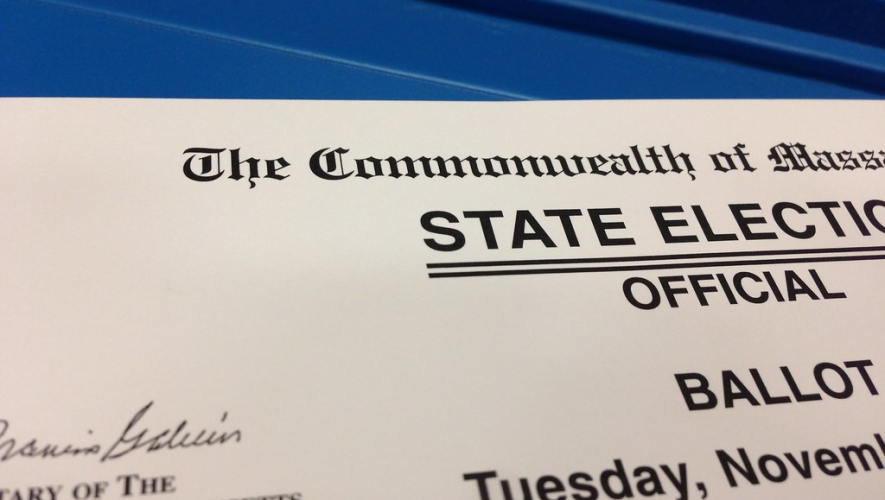With Massachusetts’ November elections quickly approaching, tension surrounds the ballot questions. Question 4, in particular, asks voters to approve the Work and Family Mobility Act in a referendum. This act enables all qualified Massachusetts residents, regardless of citizenship status, to apply for a standard driver’s license while keeping the state in full compliance with REAL ID requirements. This proposed law sparked debate on whether undocumented immigrants should be eligible for driver’s licenses, and whether it would affect voting status.
The state legislature initially passed the act on June 9, 2022 to go into effect at the Registry of Motor Vehicles (RMV) on July 1, 2023. Governor Charlie Baker soon vetoed the act, but the legislature overrode his veto. Massachusetts residents generated enough pushback against the bill that Question 4 (Q4) was brought to the ballot for the November general election. You may immediately jump to one side or the other, but before voting, make sure you know the facts and the arguments for both sides. Your vote will leave an impact on the lives of many residents in your community.
How Would Obtaining a License Work?
Under the Work and Family Mobility Act, the license registration process for undocumented immigrants is not much different than the process for everyone else. If an undocumented immigrant is over eighteen and has never held a license before, they have to apply for a learner’s permit. First, they present the RMV with proof of their identity, date of birth, and Massachusetts residency. Next, they receive a learner’s permit if they pass the required knowledge exam and vision test, just like any other first-time driver. Driver’s ed class or practice driving with a permit is not required; the applicant may receive their driver’s license after passing the road test. Undocumented immigrants are able to drive without the fear that being pulled over for a minor infraction, like speeding, could result in deportation.
Why Vote Yes?
Those in favor of Q4 argue that it will make the roads safer. Undocumented immigrants drive anyways, but now they will be able to pass the road test, receive their license, and apply for insurance without the risk of deportation.
Sixteen states that implemented similar laws saw decreases in hit-and-run accidents. In California, the law correlated with 10 percent fewer hit-and-run crashes each year after it was passed, and in Connecticut, 9 percent.
Implementing the Work and Family Mobility Act , a provision of which concerns the removal of proof of citizenship or immigration status requirements for driver’s license applications, could also benefit the economy. Without these regulations, states would profit more from automobile insurance. Utah and New Mexico saw 80 and 60 percent decreases, respectively, in the rate of uninsured drivers after the implementation of similar laws.
We interviewed pro-Q4 Massachusetts Senator Brendan Crighton for his opinion. He says implementing this law would “only change that [undocumented immigrants] passed the test, submitted documentation, got insurance, and demonstrated they were able to drive, which is why we believe this, like the other states that have passed it, will lead to safer roads and better outcomes for all.” Here, Crighton sums up why we should vote yes: having more people on the road who have passed their driving test will make driving safer for everyone.
Why Vote No?
Critics argue that implementing Q4 will have negative consequences. Many fear that passing Q4 will incentivize illegal immigration to Massachusetts, creating additional repercussions for the community. They state that Massachusetts accident rates will increase because general accidents rates increased in the 16 states that implemented this law, making the roads more dangerous. While there is no clear correlation between accident rates and undocumented immigrants receiving licenses, there are no peer-reviewed studies that successfully pinpoint the number of undocumented immigrants driving without licenses in the first place.
Those against Q4 also worry that the Massachusetts Registry of Motor Vehicles will accidentally give undocumented immigrants the opportunity to register to vote along with license registration, a protocol already in place for citizens. While the RMV insists that they will have multiple procedures in place to ensure that anyone without proof of residency will not be automatically registered to vote, critics question the RMV’s capacity to handle the rapid influx of new license applicants. Many distrust the RMV’s ability to discern forged proof of identity and residence documents from real documentation.
This skepticism pushed Republican Governor Charlie Baker to veto the act. He took issue with the lack of distinction between the licenses of legal residents and the licenses of undocumented immigrants, fearing that a Massachusetts standard driver’s license could no longer act as proof of someone’s identity. Bristol County Sheriff Tom Hodgson shares Baker’s concern that undocumented immigrants may use driver’s licenses to register to vote. Hodgson claims that allowing undocumented immigrants to receive a license rewards them for breaking the law.
In an attempt to learn more about this position, we requested an interview with anti-Q4 Senator Ryan Fattman, but unfortunately, we did not receive a response in time for the upcoming elections. Those against Q4 believe that if it is passed, illegal immigration to Massachusetts will rise, undocumented immigrants will be able to vote, and roads will become more dangerous.
Why Vote At All?
Voting is a great way to have a say about issues in your community. It’s easy to feel like you don’t have a voice, but if you vote, you can influence the future of your town, your city, or even your country. Voting is also a great way to stay informed on current events. It’s important to know what’s going on in your community if you want to make a positive impact. Voting is your right, so don’t waste it.
If you haven’t registered to vote yet, it’s likely easier than you think. First, you need to go to the Massachusetts election website to complete a voter registration form. Once completed, you can mail this form to your city or town hall. You can register for in-person voting or mail-in voting, so no matter where you are, there’s no reason not to vote. It’s a no-brainer, so get out there and make your voice count.



